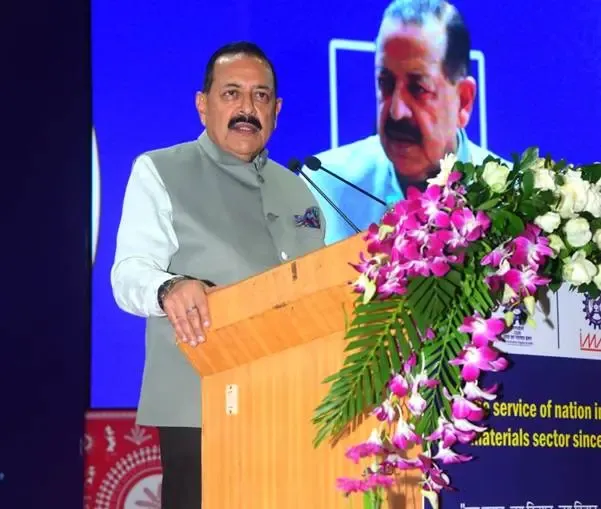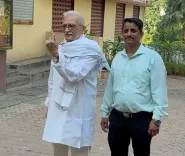How Can Researchers Leverage India-Specific Data for Health Challenges?

Synopsis
Key Takeaways
- India's health challenges require India-specific data for effective solutions.
- Longitudinal cohort studies can uncover genetic and lifestyle factors.
- Integrated policies are essential for managing both communicable and non-communicable diseases.
- Government initiatives are advancing genomic research in India.
- Preventive healthcare must be prioritized for a healthier future.
Bhubaneswar, Nov 13 (NationPress) The battle against diabetes and other escalating metabolic disorders in India necessitates the utilization of India-specific data for tailored solutions, underpinned by extensive scientific evidence, stated Union Minister for Science & Technology, Jitendra Singh, on Thursday.
The Union Minister delivered these remarks at the launch of the National Conclave on Longitudinal Cohort Studies – “Cohort Connect 2025” at CSIR-IMMT, Bhubaneswar. This conclave aims to enhance research into the genetic, environmental, and lifestyle factors affecting health in India, facilitating personalized genetic treatments and preventive healthcare.
During his inaugural speech, Singh highlighted the significance of discussions taking place just a day prior to World Diabetes Day, emphasizing that metabolic disorders, particularly diabetes, are swiftly becoming a pressing national health concern.
He pointed out that diabetes has evolved beyond a mere clinical issue to encompass a full range of vascular, neurological, and renal complications, thus making scientific inquiry in this field essential for national health planning.
The Minister stressed that India is concurrently addressing both communicable and non-communicable diseases, and the intricate relationship between diabetes and infections like tuberculosis necessitates integrated policy approaches rather than isolated programs.
“India's unique phenotypic characteristics have been recognized for many years, yet have not been scientifically validated due to a lack of genomic and epidemiological infrastructure. However, with initiatives such as the CSIR-led Phenome India and extensive longitudinal cohort studies, we can now accurately assess how genetics, environment, diet, and lifestyle influence disease susceptibility in Indian populations,” the Union Minister emphasized.
Singh provided clinical and historical perspectives on how global medical understanding has developed—from the pre-insulin starvation management of diabetes to contemporary genetic therapies—and urged caution in adopting new medications and technologies without long-term evidence tailored for Indian demographics.
Emphasizing government efforts, Singh noted that both CSIR and the Department of Biotechnology are actively engaged in human genome sequencing, with nearly 10,000 genomes already sequenced and a goal of reaching one million genomes progressing swiftly.
He also highlighted India’s inaugural successful trial for hemophilia utilizing indigenously produced Factor VIII, showcasing the nation’s advancing capabilities in sophisticated biomedical research.
“The government is concurrently developing vaccines for diseases such as dengue, malaria, and tuberculosis, while AI-driven diagnostics, digital health platforms, and quantum-enabled solutions are increasingly being integrated into India’s healthcare framework,” Singh added.
The Minister reiterated that with 70% of India’s population being under 40, prevention should be the cornerstone of the country’s future health strategy. A robust cohort study framework, he asserted, will yield actionable datasets for preventive, prophylactic, and therapeutic strategies customized to Indian needs.










